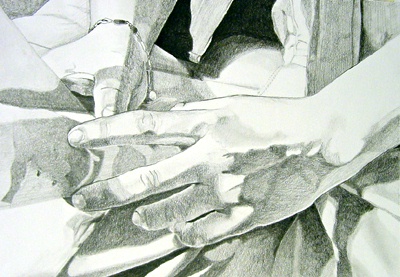All Nonfiction
- Bullying
- Books
- Academic
- Author Interviews
- Celebrity interviews
- College Articles
- College Essays
- Educator of the Year
- Heroes
- Interviews
- Memoir
- Personal Experience
- Sports
- Travel & Culture
All Opinions
- Bullying
- Current Events / Politics
- Discrimination
- Drugs / Alcohol / Smoking
- Entertainment / Celebrities
- Environment
- Love / Relationships
- Movies / Music / TV
- Pop Culture / Trends
- School / College
- Social Issues / Civics
- Spirituality / Religion
- Sports / Hobbies
All Hot Topics
- Bullying
- Community Service
- Environment
- Health
- Letters to the Editor
- Pride & Prejudice
- What Matters
- Back
Summer Guide
- Program Links
- Program Reviews
- Back
College Guide
- College Links
- College Reviews
- College Essays
- College Articles
- Back
Mirror
Before I even open the door, I know with a certainty as solid as my belief in my alarm clock that you will be there, lying limp on the couch, defeated by the television. I will stomp the snow off my boots, jangle the keys loudly, and then shut the door with a thud, but only when I venture a “Hi, Dad,” will you slowly turn your gaze away from the screen and greet me with a distracted hello.
But each day, as I climb the stairs to the second floor of the apartment building, my hopes climb, too. Each day, I reach the door, put my palm on the cold metal of the knocker, and press my forehead against the door. The force of that gesture should mean you will be different when I come inside. Can’t you see how much I want it? How much you should want it, too? I hope you want it more than I do, but I have a sickening, unsettling sense that you don’t even care.
Today, after my silent plea, I unlock the door and brace myself for reality.
“Hi, Dad.”
Pause. The glow of the television screen flickers across your face. You pull yourself away from that drama and fix your eyes on mine for a moment as brief a snowflake melting on the tongue. “Oh, hello. How was school?”
Your gaze flicks back to the screen as I answer, “Fine. My English teacher really liked my short story.”
“That’s wonderful,” you say, and I think there is a genuine attempt to congratulate me and share in my success. The sentiment is faint, though, barely emerging from the mouth of the long tunnel through which your thoughts travel and emerge as words.
You sense the unhappiness in my tight words, despite my good news. “Is everything else okay?” you ask me.
I hesitate. I am grateful that you do not allow yourself to glance at television during my pause. My gaze falls upon the photograph of Grandma on the table next to the couch.
I turn to the book case by the door and pull out a book you wrote. I flip through its pages, stalling. I finally venture a question that barely means anything. “Why don’t you write any more, Dad?”
You shake your head, irritated. “I’ve written more than enough. I just. . . not right now.”
“Are you going to the nursing home today?” Again, another question that skitters across the problem but bounces off its surface.
With infinite weariness, you reply, “After this show ends. Want to come?”
I hesitate.
No, Dad. I don’t want to see Grandma. The resemblance between you and her grows with every day. Not just the way your mouth is starting to turn down at the corners like hers, and not even the way the veins swell underneath the top of your hands like hers because you both once used them so much.
I see in your eyes the same vacancy that fills hers.
No, Dad. I don’t want to see Grandma. Alzheimer’s is erasing her, and you are letting yourself be erased, too.
No, Dad! I don’t want you to see Grandma, because you cannot deal with the fact that you are supposed to keep on living and thinking and doing and creating while she no longer can.
In writing, you examined life and inhaled its sweetness, then took a magnifying glass and stared at its defects. Now, you gape carelessly at the television, at events scripted and polished and calculated to entertain, passively letting the real world sneak past you.
“Okay,” I answer. “I’ll come. I need an hour, though. I have a story to write.”

Similar Articles
JOIN THE DISCUSSION
This article has 0 comments.
